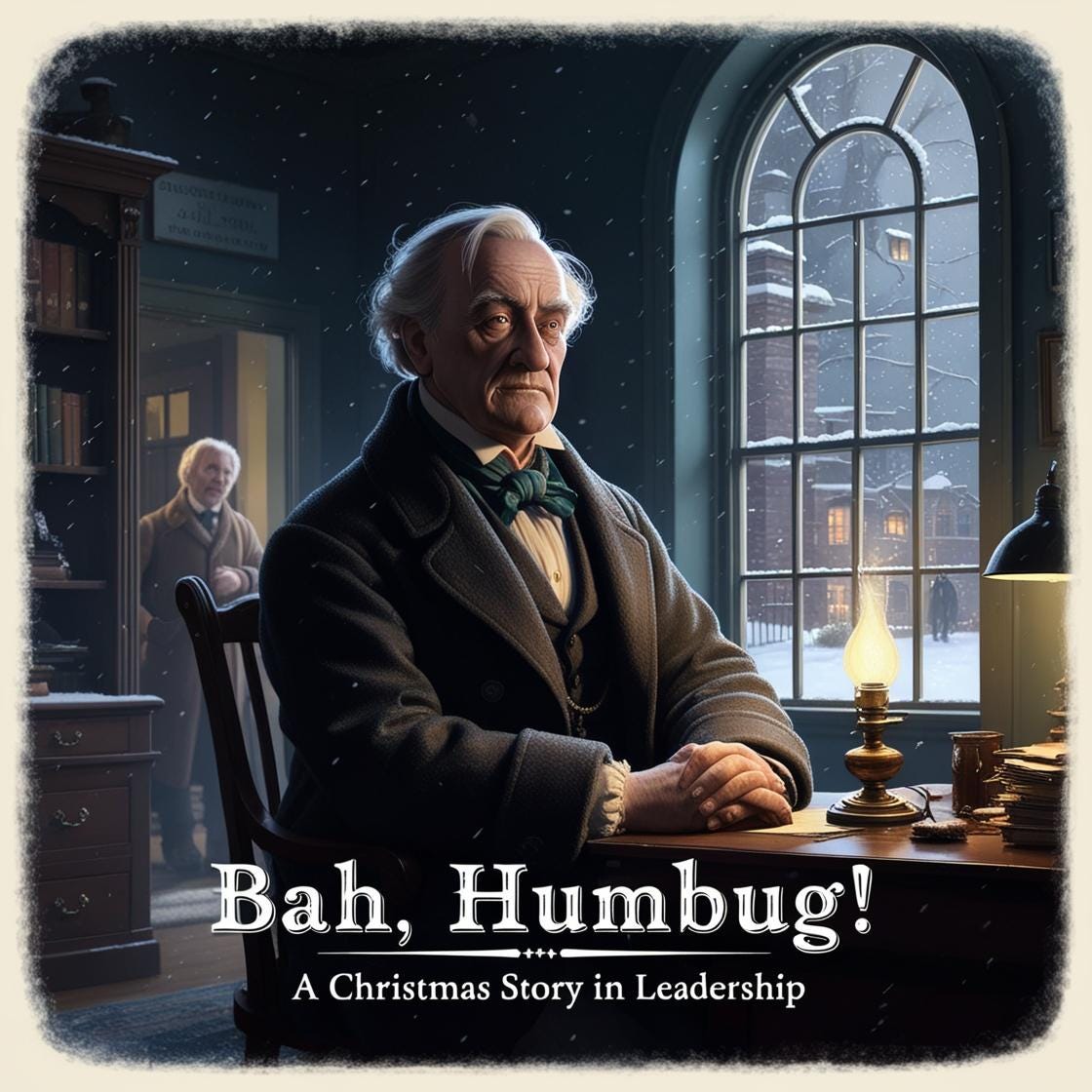Bah, Humbug! A Christmas Story in Leadership
Scrooge’s Journey from Self to Team
“The best way to spread Christmas cheer is singing loud for all to hear.”
— Buddy the Elf
Bah, Humbug! A Christmas Story in Leadership
Chasing Influence: Transformational Coaching to Build Champions for Life.
“Bah, humbug!” Ebenezer Scrooge’s signature dismissal of Christmas captured his cold, uncaring personality. A man consumed by profit margins and disdain for his employees, Scrooge ran his business with a heartless iron fist that failed to inspire loyalty or growth. Yet the story of Scrooge in a Christmas Carol reminds us no matter our past, we can all change. The transformation of Scrooge is filled with lessons on leadership, teamwork, and the spirit of collaboration.
As we all know, it began on a cold, snowy Christmas Eve. Alone in his dreary office, Scrooge scoffed at the holiday cheer offered by his kind-hearted employee, Bob Cratchit. The idea of living with generosity was nothing short of outrageous for Scrooge … there’s a reason his name now represents the quintessential miser. Later that night, after Cratchit was dismissed and snow blanketed the city, Scrooge was visited by the ghost of his late partner, Jacob Marley. Marley warned him that his selfishness would lead to a tormented existence.
Marley’s message? Change is essential, and time is fleeting.
Following Marley, three ghostly encounters reshaped Scrooge’s outlook—and can provide insight for leaders reflecting on their journeys.
The Ghost of Christmas Past showed Scrooge his younger days, when joy and fellowship were alive and well in his life. This vision reminded him of the warmth and fulfillment that results from prioritizing relationships over personal gain.
The Ghost of Christmas Present revealed the struggles of his team, particularly Bob Cratchit’s family. Despite their poverty, they celebrated with gratitude and joy. Scrooge saw the stark contrast between his wealth and their richness in life.
It was the Ghost of Christmas Yet to Come which delivered a chilling glimpse into the future. Scrooge witnessed the loneliness that awaited him if he remained unchanged, an unmourned death and a legacy of indifference.
When he woke from his dreams, Scrooge took immediate action. He raised Cratchit’s salary, vowed to support Tiny Tim, and began to see his team not as pawns of profit but as real people with value and potential. His freshly gained perspective brought generosity, trust, and joy. It changed his life.
No matter where we find ourselves on the leadership continuum, the holidays and new year offer each of us an opportunity for reflection, newfound hopes, and growth. What can we learn from Ebenezer Scrooge?
Lead with empathy. Understanding your team’s struggles creates trust and loyalty. Scrooge learned that supporting Bob Cratchit was an investment in both the person and the company.
Embrace change. Leadership requires constant growth. Scrooge’s transformation demonstrates the power of self-awareness and the courage to adapt.
Prioritize team morale. Celebrating successes and showing appreciation builds bonds and inspires.
If Scrooge can do it, so can we. What will you change to make your life and the lives of those you lead better from this day forward? Write it down. Commit to it. Don’t wait for a ghost to scare you into action!
“No one is useless in this world who lightens the burdens of another.”
— Charles Dickens
Connecting this quote to the story. Scrooge discovered that helping others would enrich his life and have a positive impact on others.
Chasing Influence tip: Regularly check in with your team’s well-being and look for opportunities to grow both as a leader and as a human!
If you enjoyed this story, a series of three Chasing Influence workbooks is available. Stories are accompanied by discussion questions and answers. Each workbook contains 33 lessons to use with any team.
Updates on Chasing Influence
Chasing Influence: Transformational Coaching to Build Champions for Life is available in Kindle, softcover, hardcover, and audiobook editions.
For additional resources, links to podcast appearances, and other Chasing Influence news, click here.
©Troy Urdahl, 2024


